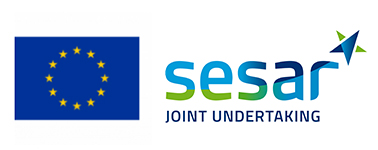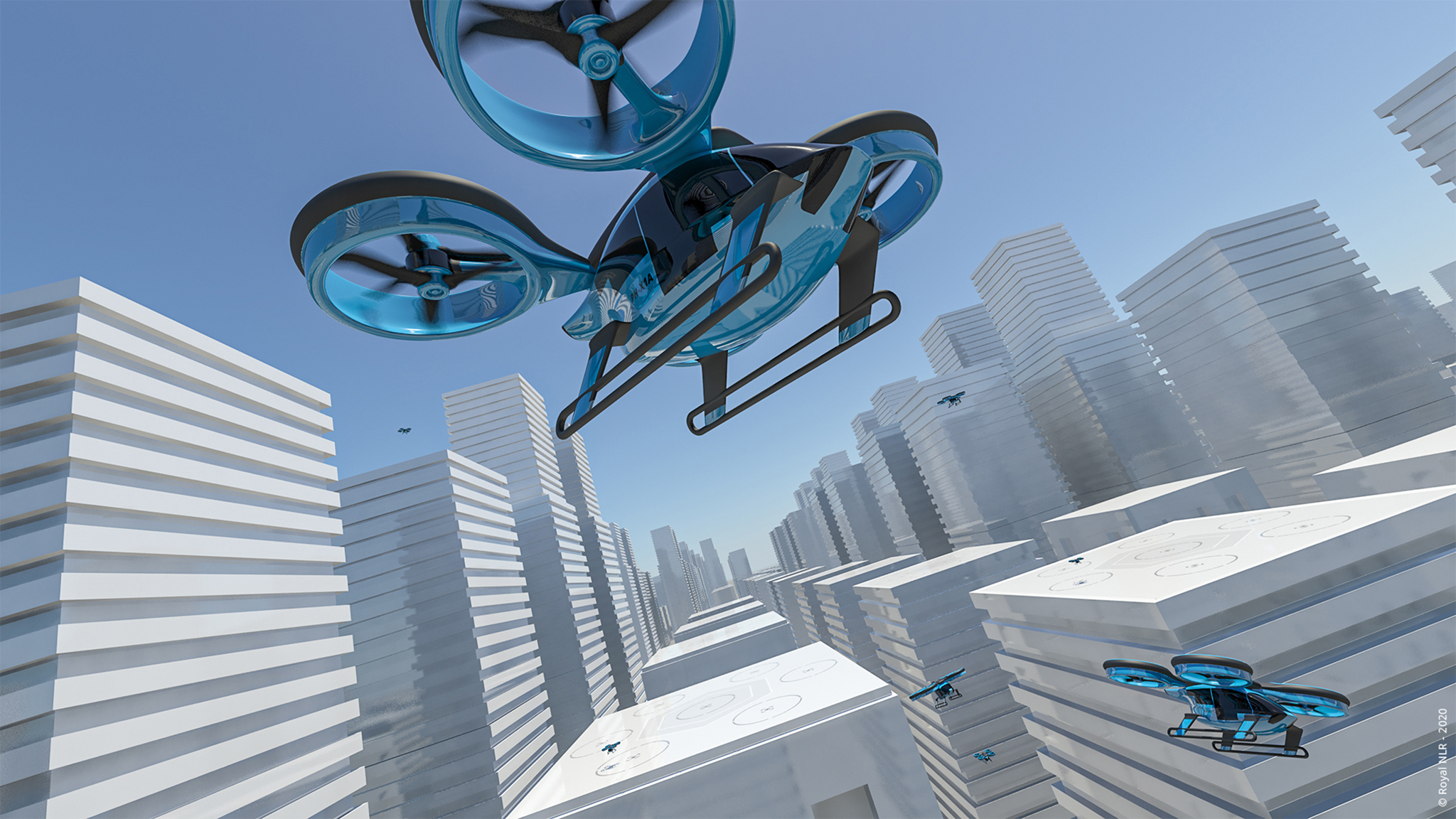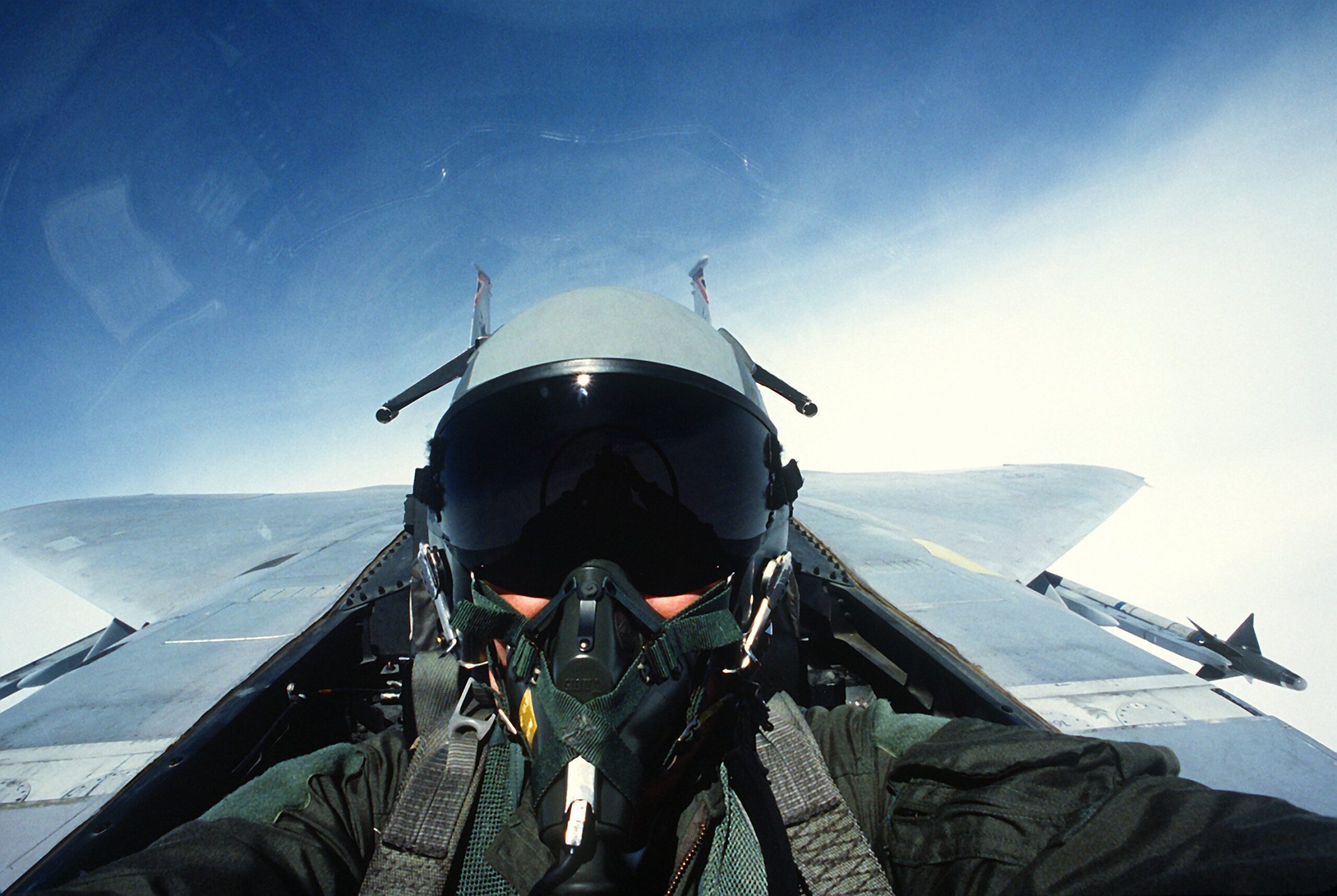Passenger air taxis and drones for cargo transport or for assistance in emergency situations are a reality for the future. Urban Air Mobility (UAM) provides an opportunity for making cities greener and ‘smarter’. This prospect led to the project ‘Air Mobility Urban – Large Experimental Demonstrations’ (AMU-LED), an H2020 project of the European Commission with the primary objective of demonstrating the safe integration of different types of drone operations in the airspace of our cities.
On behalf of NLR, our Senior R&D Manager Henk Hesselink is the technical manager of this large-scale project. “One of the partners involved is already letting tourists in China take a round trip in a drone that is controlled from the ground,” he tells us. “There’s still a lot that has to be arranged, but we’d like to make it this concrete too: carrying passengers and cargo without a pilot on board and coordinated in U-space – an extensively automated air traffic control system for drones.”
It is therefore an ambitious initiative that will run for two years, leading in 2022 to one of the biggest demonstrations ever of the application of drones for urban mobility. Locations have been chosen in three countries: Santiago de Compostela in Spain, Cranfield in the United Kingdom and Amsterdam, Rotterdam and Enschede in the Netherlands.
A total of seventeen different entities from Europe and the United States are involved in the project. The consortium is coordinated by Everis and it comprises several prominent players: Airbus, AirHub, Altitude Angel, ANRA Technologies, Boeing Research & Technology-Europe, FADA-CATEC, Cranfield University, EHang, ENAIRE, the Municipality of Amsterdam, INECO, ITG, Jeppesen, NLR, Space53 and Tecnalia.
More than 100 flying hours in cities
The anticipated tests and demonstrations for the AMU-LED project involve over 100 flying hours. Various types of drones and drone flights will be combined, taking account of a range of scenarios, use cases and applications. These will consist of air taxi flights, cargo transport, delivering medical equipment, inspection of infrastructure, police surveillance and support for the emergency services.
“UAM is becoming a hot item worldwide,” says Marc Sandelowsky of the drone innovation and testing centre Space53. “Even the Dutch minister of Infrastructure and Water Management mentioned the possibility of air taxis flying above Dutch cities when she recently opened Amsterdam Drone Week. We’re a drone innovation cluster, so we can’t wait to get down to brass tacks, getting this new technology operational. We see some good opportunities for Dutch developers to build up an international market position here, as long as we’re able to show in this project that it can be done safely and responsibly.”
Carrying out practically-oriented testing and simulations will let the project investigate and demonstrate how the burden on roads on the ground can be reduced, how passenger and cargo transport can be improved and journey times shortened, how air pollution can be cut and how road traffic accidents can be reduced. With the help of the data that the various tests and demonstrations will provide, AMU-LED will yield valuable information for the regulatory authorities such as EASA, the European Aviation Safety Agency. The project will ultimately benefit the development of legislation and regulations for using unmanned systems for urban mobility, UAM in particular.
A link in the evolution of air traffic management
AMU-LED is an H2020 project of the European Commission, falling within the SESAR programme (Single European Sky ATM Research). SESAR aims to modernise air traffic management in Europe, in which Urban Air Mobility (UAM) plays a prominent role. It requires new concepts and regulations to be developed to make a sustainable, integrated and operational system possible within today’s air traffic.
“The AMU-LED project offers a wonderful opportunity to show the added value of UAM for society and to bring together new technologies such as 5G, artificial intelligence and drones,” says Stephan van Vuren, co-founder of the drone software developer and consultancy AirHub. “We’re looking forward to demonstrating what the Dutch drone industry is capable of.”
The extensive, multidisciplinary AMU-LED team consists of experts in air traffic solutions, simulations and drone operations, professionals from research centres, legislators and specialists in carrying out testing and setting up demonstrations.
This project has received funding from the SESAR Joint Undertaking (JU) research and innovation programme
under grant agreement No 101017702.




